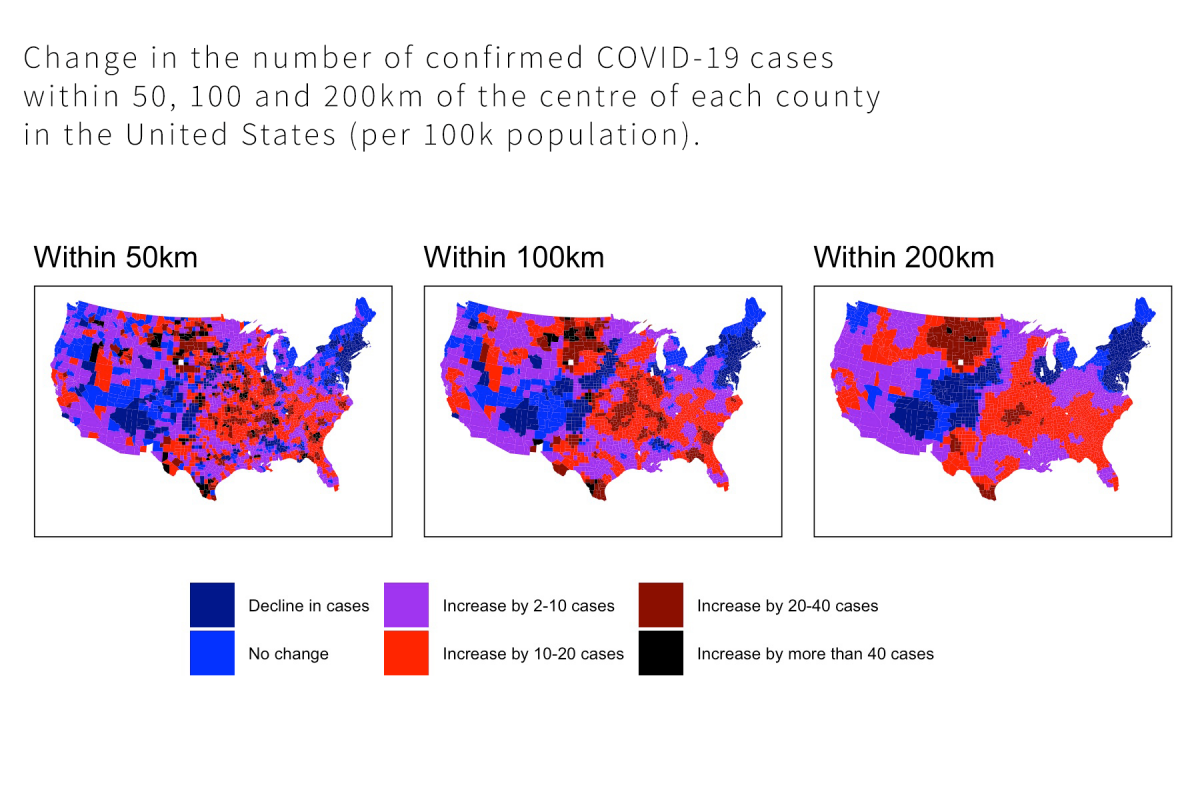Designed for the applied users of R, this master-class will show you how to access spatial data from a number of sources, match this with geographic shape files, analyse spatial patterns, link these data to information from surveys, and create interactive maps to highlight important findings.
This course will be run over 2 days in three sessions per day:
- 9.30 am - 11.30 am - Session 1
- 12.00 pm - 1.30 pm - Session 2
- 2.30 pm - 4.30 pm - Session 3
This course is being held online via Zoom and run on Australian Eastern Standard Time (GMT +10)

Dr Shaun Ratcliff is a political scientist, survey researcher and applied data scientist.
He is the Principal at Accent Research, where he works with clients on complex social and political research, studying how the public thinks and behaves, what influences their beliefs and actions, and ways to engage with them.
He was previously Director of Data Science at YouGov, and before that, a Lecturer at the US Studies Centre at the University of Sydney where he remains an Honorary Associate and continues to teach data science.
He has a PhD in Political Science from Monash University.
With terabytes of information on consumer behaviour, public transport use, crime statistics and election results sourced from across the world now available almost anywhere in minutes, our ability to answer important questions about the world have never been greater.
Much of human behaviour can be understood, at least partially, as a function of geography. This masterclass will show you how to access spatial data from a number of sources, match this with geographic shape files and link it to information from surveys, analyse spatial patterns, and create interactive maps to highlight important findings.
Designed for the applied users of R who want to take their spatial analysis to a higher level, this masterclass is intended for participants who have some experience using R. You will learn to use R and Markdown to clean and manipulate spatial data, produce high quality visualisations (including maps), and use linear regression to analyse relationships in spatial and individual-level data.
Day 1 - Spatial data: what it is, and how we work with it.
During the first day of the masterclass, we will look at how these types of spatial data can be accessed, manipulated and analysed. We will work with shapefiles, combining them with other forms of spatial information, including information on geographic units from the Australian Bureau of Statistics.
Content:
1. Working with shapefiles and other forms of spatial data.
2. Exploring spatial patterns.
3. Revision: Spatial autocorrelation
Day 2 - Linking survey microdata with spatial data, and visualising our results
On the second day of the course we will link spatial data with microdata from surveys. This allows us to connect data on individuals with spatial information connected to their location. By doing this, we are able to examine the association between individual attitudes and behaviours and aggregate spatial variables.
We will learn how to do this using survey panel data collected in Australia after the 2019 bushfires, allowing us to examine how proximity to serious fires is associated with attitudes to climate change. Using these data we will also create interactive maps plotting the location of our respondents and major fires. We will then fit some regressions to these data to model spatial trends in attitudes.
Depending on time, we will finish the day combining what we have learned to explore predictors of the county-level outcomes at the 2020 US presidential election.
Content:
1. Linking survey microdata with spatial information.
2. Creating engaging interactive maps using these data.
3. Bringing it all together: Modelling spatial trends.
4. Revision: What predicts spatial distribution of votes in US presidential elections?
You will need your own computer preloaded with R and an internet connection.
We will be in contact prior to the course to ensure you have the software you will need.
Data and course notes will be provided.
This course is designed for applied users of R.
Prior experience with R is necessary.
Completion of the ACSPRI course Data Analysis in R, or equivalent, is helpful.
Course notes will be supplied.
This course was very well done online, compared to previous online courses I've done. I think that's because the tutor basically spent the whole two days doing the actual work of running analysis in R, rather than presenting an extended lecture (which is how previous courses online have been)
Yes, these analytical courses are excellent online as you can follow the steps on screen
It was mainly interactive teaching / learning. Being able to do it myself at the same time is a great aspect
Yes! Appreciated the frequent requests for screen sharing, and that there is more detail/ links in the notes for further practice.
As an introduction to the subject matter it gave me the information needed to do some advanced aspects and progress further on my own.
You made a good case for using Markdown for everything, and for using R rather than other mapping software. Great to learn a new way to do things.
